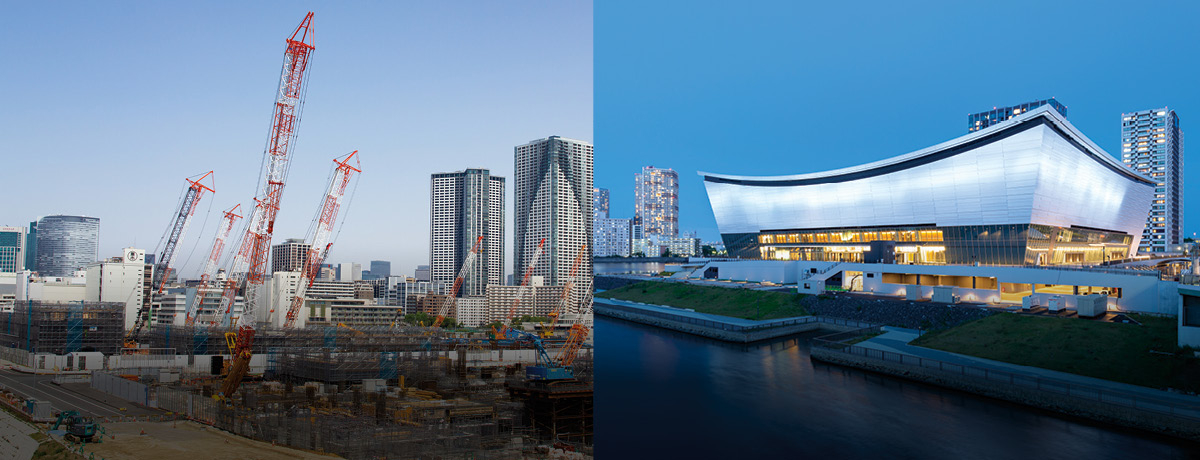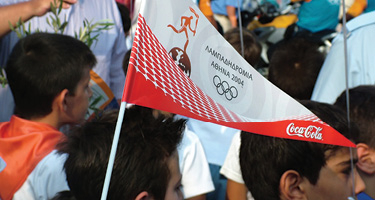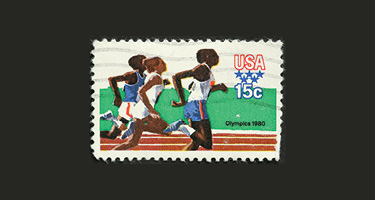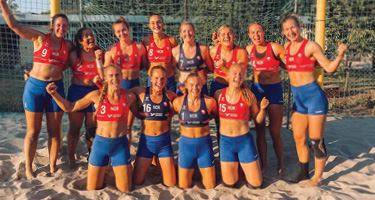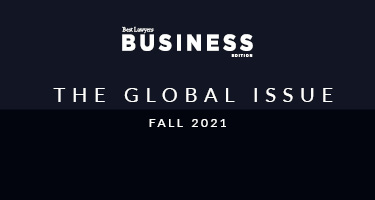This article was originally published on 9/23/21 and was updated on 2/16/22.
“The goal of Olympism is to place sport at the service of the harmonious development of humankind, with a view to promoting a peaceful society concerned with the preservation of human dignity.” –Olympic Charter, Second Fundamental Principle of Olympism
Sports, and the Olympic Games in particular, are public events in the most literal sense of the term. At the same time, sports worldwide are multibillion-dollar industries, the Olympics being a prime example. They’ve evolved from a showcase for amateurs to outright professionalism, and now generate extraordinary revenue. Broadcast rights for the six Olympic Games between 2022 and 2032 were sold in 2014 for $7.75 billion—to the United States broadcasters only.
The expenses incurred by such enormous events have also skyrocketed, however. The Tokyo Olympics are estimated to have cost between $15 billion and $30 billion. Host cities and nations contribute large amounts of taxpayer money to help finance them, which triggers political debate and increases opposition to hosting them.
Hosts in the European Union, where the 2024 Summer Games (Paris) and the 2026 Winter ones (Milan–Cortina d’Ampezzo, Italy) will take place, must also cope with the constraints of a strict competition policy. When using state resources, EU members face scrutiny by the European Commission (EC) under the auspices of EU state-aid rules. While the Commission has generally been flexible about sports-infrastructure subsidies—especially during the pandemic—public authorities must adhere to a variety of substantive formal requirements.
For Paris’s 2024 Summer Games, for example, the European Commission in March approved a direct grant of €17 million for the rebuilding of Hall 3 of the city’s Le Bourget Exhibition Centre to serve as a media center— aid, the EC stated, “to facilitate the development of certain economic activities or of certain economic areas, where such aid does not adversely affect trading conditions to an extent contrary to the common interest.”
The Commission emphasized the subsidy’s positive effect of contributing to the organization of a global sporting event and therefore to the promotion of sports overall, recognizing athletics’ social importance as also explicitly recognized in EU law. The decision is of a piece with the approach the Commission laid out in its 2017 Infrastructure Analytical Grid for Sport and Multifunctional Recreational Infrastructures.
Direct grants for reconstruction of infrastructure require notification of the EC and compatibility with EU state-aid law. The money must not fall within the scope of exempt categories, including aid for noneconomic activity; aid with a purely local impact; aid that does not confer economic advantage based on the private-investor test; or aid for infrastructure entrusted as a service of general economic interest.
It’s likely that the protracted pandemic will continue to boost the need for state financial support of the sports sector.”
Because this subsidy was not covered by the Commission’s General Block Exemption Regulation, France needed to demonstrate its compatibility with the EU internal market. The EC’s review included scrutiny of the necessity, proportionality and incentive effects of the aid—which must prove that the infrastructure rebuilding is indeed being carried out but does not go beyond the minimum amount necessary.
By contrast, the Commission tends to take a rather dim view of aid to individual professional sports teams, in particular soccer clubs. Notably, in 2016, the EC found preferential corporate-tax treatment for four Spanish sports teams, including FC Barcelona and Real Madrid CF, to be incompatible with EU state-aid rules, lacking an objective of common interest and failing to develop European sports by promoting fairness and openness in athletic competition. This decision has just been finally confirmed by the Court of Justice of the EU in March 2021.
During the pandemic, though, the Commission has in fact been more lenient toward aid for professional sports, including support for individual clubs. Under its Temporary Framework for state-aid measures to support the EU economy during COVID-19, the EC approved several national aid schemes: in France for sports clubs and event organizers; in Italy for sports associations, amateur sports entities, professional clubs and organizers of international sporting events; and in Slovakia for professional sports teams. Similarly, the EFTA Surveillance Authority which applies a similarly strict state aid regime has approved Norwegian aid schemes for sports, especially in events of national importance.
In addition to these sports-specific programs, clubs and companies can, in principle, also benefit from certain general state-aid efforts. Germany, for instance, has notified and received the European Commission’s approval for several federal frameworks for spor ts- oriented COVID -19 aid. Based on these, the German federal government and states have set up support programs, including a general interim aid program and coronavirus-specific aid for professional sports. Sports clubs and companies can, theoretically, receive aid from multiple programs, provided they meet the eligibility criteria and comply with all regulations. In most cases, the German-specific virus aid for professional sports organizations will be more advantageous for the recipients, featuring more targeted eligibility criteria and allowing for compensation of ticket-revenue losses.
It’s likely that the protracted pandemic will continue to boost the need for state financial support of the sports sector. Global events—the Beijing 2022 Winter Olympics come to mind—will likely suffer revenue losses due to the COVID-19 pandemic as well. While Beijing as a host city can certainly rely on generous state spending, other hosts and (private) event organizers will find it more difficult to get state financial support and regulatory approval. In the European Union, at least, the European Commission has so far generally removed regulatory obstacles under its competition policy, leaving it for member states to (continue to) set up and implement what they deem necessary support programs.
Dr. Jan D. Bonhage is partner at Hengeler Mueller in Berlin. He regularly advises and represents domestic and international companies, and the public sector, on state aid, foreign investment, public procurement, infrastructure, ESG as well as other regulatory and public law matters.
Dr. Anton O. Petrov is associate at Hengeler Mueller in Berlin. He specialises in public law and advises domestic and international companies and the public sector. His practice covers representation in state aid, foreign investment and public procurement procedures and includes EU and constitutional law.
